Several Chicken Coop Questions???????
sullicorbitt
18 years ago
Related Stories
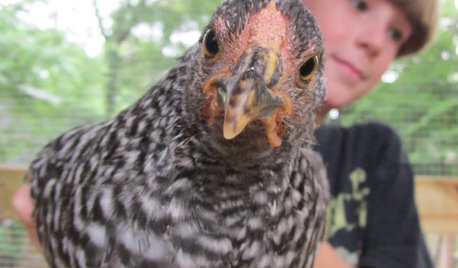
FARM YOUR YARD4 Farm-Fresh Chicken Coops in Urban Backyards
These Atlanta henhouses are worth crowing about for their charming, practical designs
Full Story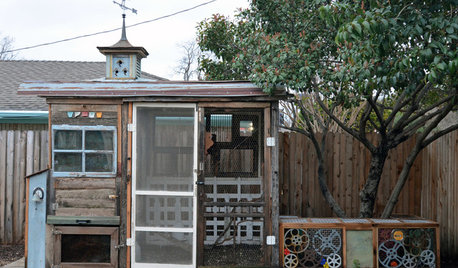
OUTBUILDINGSQuirky Meets Practical in a Dallas Chicken Coop
These hens have a stylish backyard coop built from recycled materials
Full Story
GARDENING AND LANDSCAPINGBackyard Living: The Scoop on Chicken Coops
Perk up your morning with fresh eggs and chickadee clucks when you build a chicken coop in your own yard
Full Story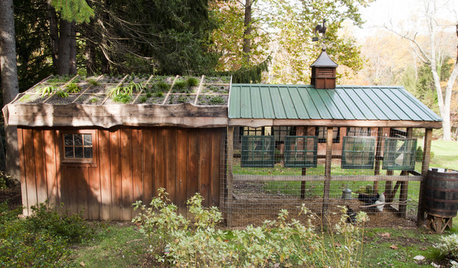
FARM YOUR YARDHouzz Call: Show Us Your One-of-a-Kind Chicken Coops
Do you have a fun or stylish backyard shelter for your feathered friends? Post your pictures and stories in the Comments!
Full Story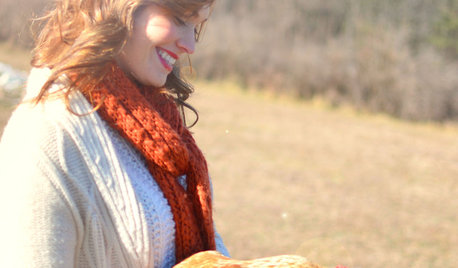
GARDENING AND LANDSCAPINGRaise Backyard Chickens Without Ruffling Neighbors' Feathers
Before you build a coop in the backyard, follow these strategies to help keep your neighbors from squawking
Full Story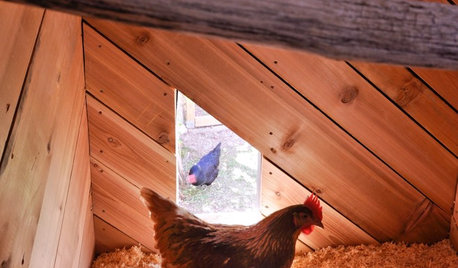
PETSHens Nest in Style in a Modern Nevada Coop
Take a mini tour of a backyard chicken coop built by a pro designer with all the essentials for the 'clients' and then some
Full Story
KITCHEN DESIGN9 Questions to Ask When Planning a Kitchen Pantry
Avoid blunders and get the storage space and layout you need by asking these questions before you begin
Full Story
GARDENING GUIDESNo-Regret Plants: 5 Questions Smart Shoppers Ask
Quit wasting money and time at the garden center. This checklist will ensure that the plants you're eyeing will stick around in your yard
Full Story
LIFECondo, Co-op, Townhouse, TIC — What's the Difference?
Learn the details about housing alternatives so you can make a smart choice when buying a home
Full Story
INSPIRING GARDENSChickens, Chess and Swimming Star in a Silicon Valley Yard
Some fowl play is afoot in these outdoor rooms, but the family members and their many guests have a pretty good time too
Full Story





sumac
HerringboneD28
Related Professionals
Lakewood Landscape Architects & Landscape Designers · Darien Landscape Contractors · Eagle Landscape Contractors · Kailua Landscape Contractors · North Richland Hills Landscape Contractors · Tigard Landscape Contractors · Columbia Fence Contractors · Sandy Fence Contractors · Walnut Fence Contractors · Dayton Decks, Patios & Outdoor Enclosures · Inwood Decks, Patios & Outdoor Enclosures · Midlothian Decks, Patios & Outdoor Enclosures · Parlier Decks, Patios & Outdoor Enclosures · Renton Decks, Patios & Outdoor Enclosures · St. Louis Decks, Patios & Outdoor Enclosurespamcleod
sullicorbittOriginal Author
erinluchsinger
sullicorbittOriginal Author
HerringboneD28
tabardca
ilovechickens
sullicorbittOriginal Author
carmen_grower_2007
lonewillowlady
sandykk
www_kylebemis_92_gmsil_com
bulldinkie
oregonwoodsmoke
bob_dimillward_yahoo_co_uk
bulldinkie
devorahjade
Kathryn Botard
bulldinkie
laturcotte1
grullablue